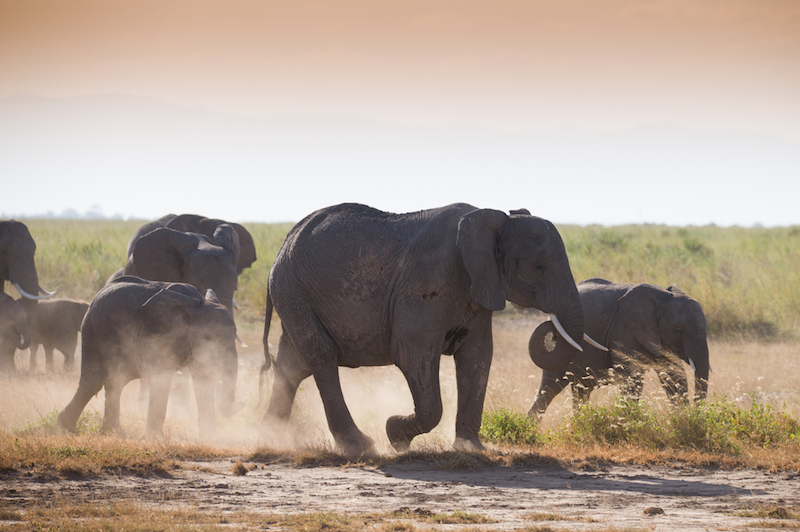
Why Can't Elephants Jump?

Elephants have many admirable qualities: They have an excellent sense of smell, rarely get cancer and have complex social lives. But, perhaps unsurprisingly, they can't jump.
It's hard to say why that is, largely because scientists haven't specifically studied why elephants can't jump. But it's likely because of the animals' enormous heft, and because they have relatively weak leg muscles and fairly inflexible ankles, said John Hutchinson, a professor of evolutionary biomechanics at the Royal Veterinary College in London.
"Animals that jump need really flexile ankles and really strong Achilles tendons and calf muscles, and elephants have really wimpy lower-leg muscles and not very flexible ankles," Hutchinson told Live Science. [Are Elephants Really Afraid of Mice?]
Hutchinson has made it part of his life's work to study elephant locomotion. The animals typically walk long distances, but they seldom run, and only do so for short distances, Hutchinson and his colleagues wrote in a 2010 study published in the journal Proceedings of the National Academy of Sciences. This is probably because elephants have poor endurance for running, he said.
Moreover, the animals seem unable to go faster than 15 mph (about 24 km/h) when they run, the researchers wrote in the study. Hutchinson has also observed that when adult and baby elephants run, they do not go airborne. That means that they always have at least one foot on the ground, he said.
In contrast, other large animals do go airborne while running, he said. For instance, the rhinoceros does, and it's not entirely clear why. "There must be something about rhinos that makes them stronger [than elephants]," Hutchinson said.
Still, it's probably best that elephants don't try to jump like kangaroos. Jumping could lead to crippling injuries if the large beasts were to trip and fall, Hutchinson said.
Sign up for the Live Science daily newsletter now
Get the world’s most fascinating discoveries delivered straight to your inbox.
In addition, most animals jump as a means of escape, an option elephants don't require, Hutchinson said. For instance, smaller and more athletic animals might use speed, flexibility and jumping to get away from predators. But elephants don't need to jump, partly because "being big is a defense in and of itself," Hutchinson said.
He added that it's difficult to say why elephants don't jump, because scientists can't prove a negative.
"Maybe elephants are choosing not to jump, and they're just being shy about it," he joked.
Follow Laura Geggel on Twitter @LauraGeggel. Follow Live Science's Life's Little Mysteries @LLMysteries, Facebook & Google+.

Laura is the archaeology and Life's Little Mysteries editor at Live Science. She also reports on general science, including paleontology. Her work has appeared in The New York Times, Scholastic, Popular Science and Spectrum, a site on autism research. She has won multiple awards from the Society of Professional Journalists and the Washington Newspaper Publishers Association for her reporting at a weekly newspaper near Seattle. Laura holds a bachelor's degree in English literature and psychology from Washington University in St. Louis and a master's degree in science writing from NYU.










